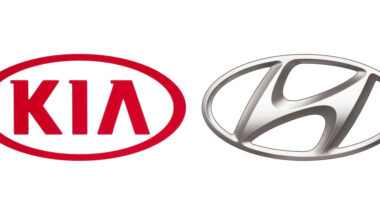Top Class Actions’s website and social media posts use affiliate links. If you make a purchase using such links, we may receive a commission, but it will not result in any additional charges to you. Please review our Affiliate Link Disclosure for more information.
If a Hyundai dealer has left you a ringless voicemail trying to convince you to buy Hyundai vehicles, you could be a victim of a TCPA violation. The Telephone Consumer Protection Act (TCPA) protects consumers from harassing phone calls, unwanted text messages, and faxes, but court rulings indicate the TCPA also covers the use of ringless voicemail.
Ringless voicemail is a relatively new technology that allows a business to drop a voicemail message directly into a phone’s messaging system without making the phone ring. The consumer has no opportunity to “let it go to voicemail” because the phone doesn’t ring in the first place. The consumer simply receives a new voice message without warning.
Last year, the Southern District of Florida ruled ringless voicemails are considered phone calls and as such, are covered under the TCPA. In Schaevitz v. Braman Hyundai, Inc., the Florida dealership faced a class action lawsuit filed by Marc Schaevitz, who alleged a Braman Hyundai general sales manager left a ringless voicemail on Schaevitz’s cell phone, encouraging the Miami resident to trade in his car for one of several new Hyundai vehicles.
Shaevitz said he did not provide the dealership with prior written consent to leave him telemarketing messages of any type. The court ruled the ringless voicemail messages are of the same sort of nuisance in the form of unsolicited telemarketing the TCPA was created to prevent.
Why Is a Hyundai Dealer Leaving Ringless Voicemails?
A ringless voicemail is a communication that is sent from one computer server to another. Companies began using ringless voicemail as a way to reach potential customers en masse at a very low cost. Because a call is not actually made, no telephone-associated charges are incurred.
Even though automotive sales representatives from Hyundai may perceive ringless voicemail to be less intrusive than an outright phone call, most people are turned off by any company that sneaks a voicemail to their phone. Although intended to generate sales, a car dealer who leaves ringless voicemails to promote new Hyundai models can have just the opposite effect on the people who receive them- recipients may develop an instant distrust of the offending caller.
Advertisement for Hyundai Cars Trade-In Options
In the Schaevitz v. Braman Hyundai, Inc. case, Schaevitz’s complaint said he received ringless voicemail messages regarding options to trade in his Hyundai. These sales messages allegedly violated the TCPA because in order to make legal telemarketing calls, a business must obtain a form that clearly states the consumer agrees to receive such marketing calls.
In July 2018, Florida became the first state to ban ringless voicemail when telephone solicitation laws were updated. The law says the ban covers “technologies that deliver a voice message directly to a voicemail application, service or device.”
How Can You Stop the Ringless Voicemails from a Hyundai Dealer?
Although they may be less intrusive than spam phone calls or text messages, ringless voicemails may be even more annoying to consumers due to the difficulty in blocking them. While consumers who are being harassed by robocalls may be able to download a call blocking app to screen potential spam calls, ringless voicemails may be harder to stop. In addition to the difficulty in blocking these voicemails, persistent solicitors may be able to fill up consumers’ voice mailboxes with spam messages, making it difficult for them to receive or locate messages from family or friends that may actually be relevant.
Some consumers have reported having luck calling the advertisers back and demanding to be taken off of their call list. However, calling solicitors may only verify that your number is active and encourage them to continue attempting to contact you.
Another way to potentially stop ringless voicemails is to register your phone number with the National Do-Not-Call list. Registration for this list is free and does not expire. Federal laws prohibit advertisers and retailers from calling numbers on the list without the consumer’s permission. However, not every solicitor abides by these laws.
If you have registered your number with the Do-Not-Call list and continue to receive calls from a Hyundai dealer or other retailer, you may be able to report these unwanted calls to the Federal Communications Commission (FCC). Recipients of unwanted calls, texts, or ringless voicemails from a Hyundai or other car dealership can file a complaint with the FCC, the federal agency that oversees TCPA rules and enforcement. The FCC has an online complaint center where consumers can report TCPA and other violations and describe the nature of the intrusive ringless voicemails or messages they have received.
To note, the FCC does not follow up on each individual complaint to ensure that companies are in compliance with the law. Instead, the agency reviews compiled complaints to determine if there is a pattern of misbehavior by a specific company. While filing a complaint may be helpful in the long term, it is unlikely to stop a Hyundai dealer from sending ringless voicemails to your cell phone now, unless you file a paid formal complaint. Paid complaints cost $225 to file, but may result in further action being taken.
You can also contact your state’s office of the attorney general to file a telemarketing complaint. Most states have an online form for consumer complaints that includes telemarketing and robocall complaints.
What Precedents Could Influence TCPA Legal Action Against a Hyundai Dealer?
On Aug. 2, 2020, a request by Budget Van Lines to dismiss a class action lawsuit over alleged TCPA violations was denied because the judge determined ringless voicemails qualify as calls.
A U.S. district court judge from Nevada ruled Caplan v. Budget Van Lines can continue through the court system. Plaintiff Caplan alleges he received two “calls” in the form of ringless voicemails that he alleges violated the TCPA.
Budget Van Lines tried to convince the court that the TCPA does not apply to ringless voicemails because the ringless voicemail messages are not delivered through the cell phone user’s provider network. Because of the technologically different delivery system of ringless voicemail, Budget argued that the communication was more like “information services” rather than any traditional sense of cell phone transmission, which would mean the TCPA would not apply.
Because the TCPA covers phone communication that amounts to being a nuisance and an invasion of privacy, the court ruled ringless voicemail falls under the regulation of the TCPA.

In addition to the TCPA, a new law protecting consumers from being harassed by robocalls was enacted in late 2019. The TRACED Act was signed into law in December 2019, and requires cell phone coverage providers to shield customers from incoming spam calls and texts.
As many companies have argued that the TCPA does not cover ringless voicemail, they may also argue that the TRACED Act does not cover it either. However, the TRACED Act does require cell providers to activate spam detection services on customers’ phones and adopt software that prevents call spoofing. Many incoming calls are now flagged as “Spam Likely” due to this law.
Additionally, the TRACED Act also extended the amount of time that the FCC is allowed to track down robocallers and spammers and fine them. The agency now has four years to pursue actions against consumer privacy violators. The amount that the FCC may fine robocallers has also been increased, from $1,500 to $10,000.
What to Do if the Hyundai Dealer Calls Won’t Stop
If a car dealership refuses to stop leaving ringless voicemails or exhibits other behavior in violation of the TCPA, you could be eligible to participate in a class action lawsuit investigation. Car dealerships may have to pay millions of dollars to settle TCPA class action lawsuits filed by consumers. A lawyer specialized in TCPA can assist in deciding if you have a case.
Join a Free Car Dealership TCPA Violations Class Action Lawsuit Investigation
You may be eligible to join this lawsuit investigation into car dealership TCPA violations under the following circumstances:
- You did NOT provide express permission in writing to the car dealership to receive the calls or messages.
You did NOT purchase a vehicle from the dealership that is contacting you.
ATTORNEY ADVERTISING
Top Class Actions is a Proud Member of the American Bar Association
LEGAL INFORMATION IS NOT LEGAL ADVICE
Top Class Actions Legal Statement
©2008 – 2024 Top Class Actions® LLC
Various Trademarks held by their respective owners
This website is not intended for viewing or usage by European Union citizens.
















7 thoughts onHas a Hyundai Dealer Left You a Ringless Voicemail?
Add me please these calls are annoying
Add me please
please add me
Add me please
add me
I have a Hyundai sonata. I believe they call me and send ads to my house all the time
Add me